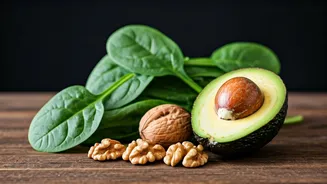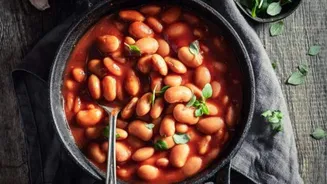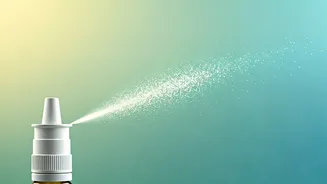The Gray Hair Dilemma
Premature graying of hair, a common concern, often signals a shift in the body's natural processes. Understanding this phenomenon involves recognizing
that hair color comes from melanin, produced by melanocytes. As we age, these cells may become less efficient or even die, leading to reduced melanin production and, consequently, gray or white hair. Several factors, including genetics, stress, and nutritional deficiencies, can accelerate this process. Premature graying, therefore, isn't just about appearance; it's a window into overall health. Addressing this issue starts with a look at what we consume. While there's no magic bullet, certain foods are packed with nutrients that support hair health and potentially combat premature graying, allowing for a proactive approach to hair wellness.
Power of Antioxidants
Foods high in antioxidants are like tiny warriors defending your hair follicles. Free radicals, unstable molecules, damage cells and can accelerate aging, including hair graying. Antioxidants neutralize these free radicals, offering protection. Consider foods rich in antioxidants such as blueberries. These contain anthocyanins, potent antioxidants known for their anti-inflammatory properties. Strawberries, raspberries, and other berries also bring a wealth of antioxidants to the table, along with essential vitamins. Including these in your diet supports healthy hair and skin by combating oxidative stress. Integrating a variety of colorful fruits into your daily meals will not only provide delicious variety but also create a robust defense against premature hair graying.
Boosting Vitamin B12
Vitamin B12 plays a crucial role in maintaining healthy hair. A deficiency can contribute to premature graying. B12 helps in the creation of red blood cells, which carry oxygen to hair follicles. Ensuring adequate levels of B12 is essential for hair health. If you are lacking in this vitamin, this can be addressed through dietary choices or supplementation. Foods rich in B12 include meat, fish, eggs, and dairy products. For vegetarians or vegans, fortified foods like nutritional yeast and plant-based milks offer an alternative. Consulting a healthcare professional can help you to determine if you have a deficiency. Incorporating B12-rich foods into your diet supports overall hair health and potentially slows down the graying process.
Copper's Role in Color
Copper is another essential mineral in maintaining hair's natural pigment. It is a cofactor in the production of melanin, which is the pigment responsible for hair color. Copper deficiency can lead to changes in hair color, including premature graying. Therefore, ensuring adequate copper intake is important for healthy hair. Incorporating copper-rich foods into your diet can support melanin production and hair health. Excellent sources of copper include nuts, seeds, and leafy green vegetables. Adding these to your meals can help keep your hair's natural color. Like with all dietary changes, it's wise to consult a healthcare professional. They can check your levels and suggest a plan tailored to you.
Iron-Rich Foods
Iron is another key player in hair health. Iron deficiency, which is quite common, can disrupt the body's ability to produce healthy hair. Iron helps carry oxygen to hair follicles, supporting growth and color maintenance. An iron deficiency can contribute to hair thinning and premature graying. It's essential to ensure you are getting enough iron through your diet. Good sources include lean meats, spinach, and fortified cereals. When consuming iron-rich foods, also consider vitamin C. Vitamin C enhances iron absorption, making the iron more effective. Consulting with a healthcare professional can help you evaluate your iron levels and establish a personalized dietary plan, promoting healthy, vibrant hair.













